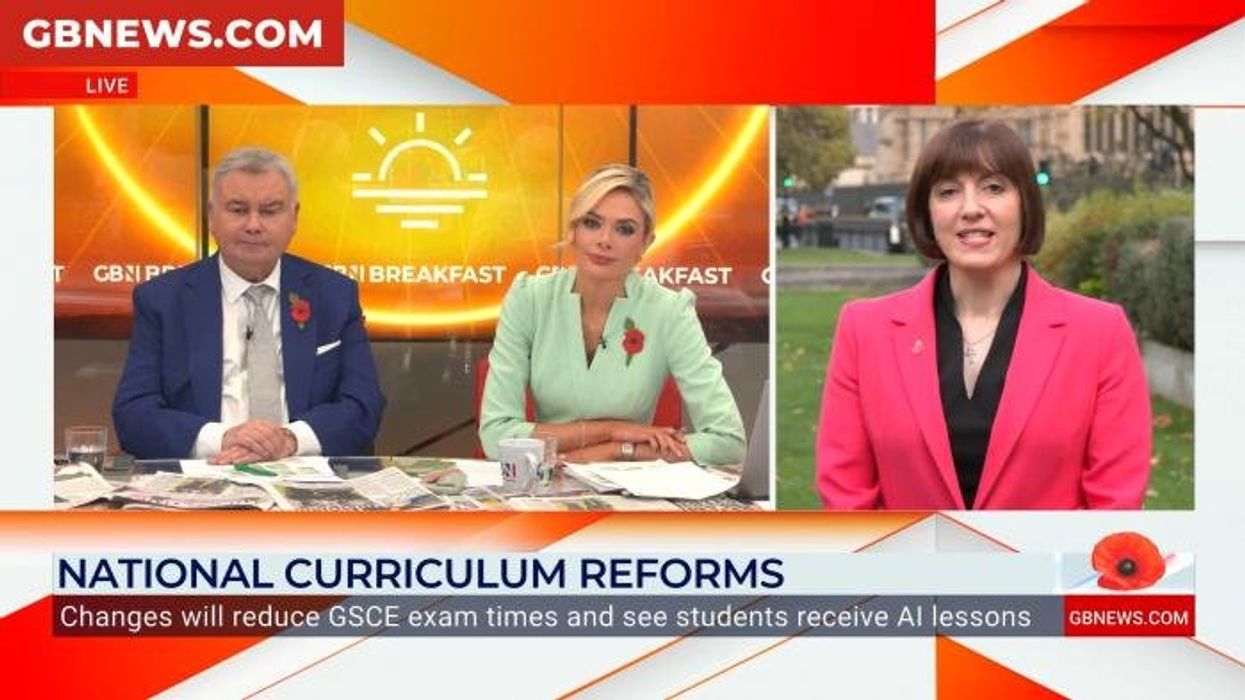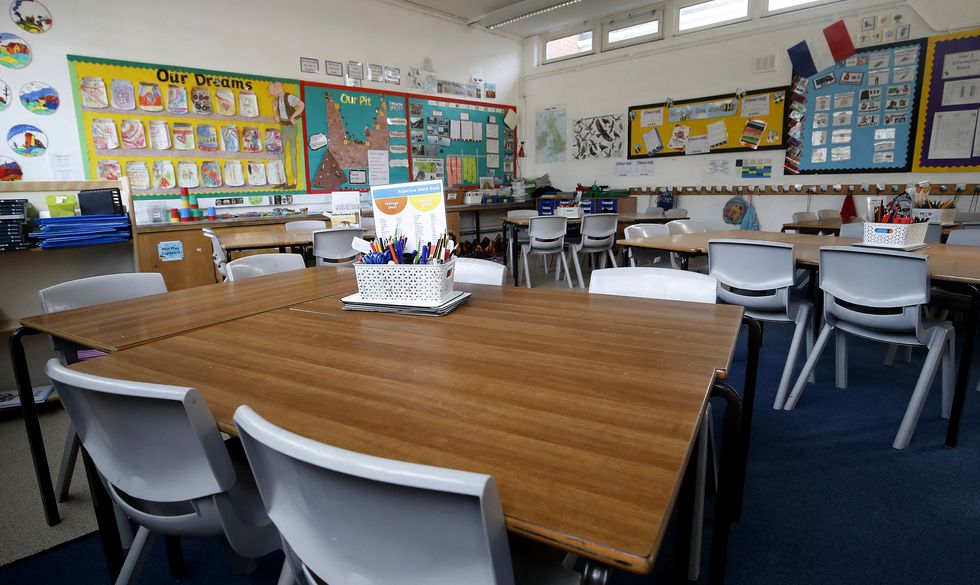England’s school curriculum overhaul to teach pupils mortgages, budgeting and spotting fake news

Education Secretary Bridget Phillipson MP explains why the Labour government are reforming the national curriculum, which would include AI lessons and reduced GSCE exam times. |
GB News

Biggest education reform in a decade will see lessons in financial literacy, AI awareness and practical life skills
Don't Miss
Most Read
England’s education system is set for its most sweeping overhaul in more than a decade, with pupils soon learning about mortgages, budgeting and recognising false information online as part of a drive to equip students with real-world skills.
The Government’s new curriculum reforms will combine financial literacy, environmental awareness and communication training alongside traditional academic subjects such as English, maths and science.
Under the plans, lessons in how mortgages work, managing household budgets and identifying online disinformation will become core elements of school life.
Students will also be taught about the uses and risks of artificial intelligence.
Practical life skills meet academic rigour
Education Secretary Bridget Phillipson said the goal is to “revitalise” what children learn in school, ensuring they leave education ready for both work and life.
TRENDING
Stories
Videos
Your Say
“These reforms strengthen, not replace, core subjects,” she said.
“We’re making the curriculum more efficient by cutting duplication and focusing on what really matters, literacy, numeracy and the skills young people need for modern life.”
The changes will also see GCSE exam times cut by up to three hours, with the Department for Education arguing that shorter tests will ease pressure on pupils without reducing standards.
Financial and citizenship education expanded
Financial education will be woven into maths lessons, while citizenship classes, made compulsory for primary pupils, will include modules on AI awareness and misinformation.
Students will be encouraged to discuss and debate issues more confidently, with spoken communication given equal status to reading and writing.

England’s curriculum will soon include mortgages, budgeting and fake news detection in its biggest overhaul in a decade
|GETTY
The reforms also place greater emphasis on environmental awareness, cultural diversity and interpersonal skills, reflecting the government’s pledge to bridge the attainment gap between disadvantaged pupils and their peers.
End of the English Baccalaureate
In a major policy shift, the Government plans to abolish the English Baccalaureate (EBacc), which has until now prioritised a fixed set of academic subjects.
Officials say the change will free pupils to pursue a wider mix of GCSEs, particularly in creative and technical disciplines.
Every student will still have the option to study three separate science GCSEs, preserving academic breadth.
LATEST DEVELOPMENTS

Former schools minister Nick Gibb and several opposition MPs have warned the move could reduce take-up of foreign languages and weaken academic rigour
| PAHowever, former schools minister Nick Gibb and several opposition MPs have warned the move could reduce take-up of foreign languages and weaken academic rigour.
Critics argue the EBacc encouraged high standards by steering students toward traditional subjects.
Supporters counter that the new approach better reflects modern needs, balancing academic excellence with practical skills such as financial literacy and digital awareness.
Industry backing and classroom partnerships
Teaching unions and school leaders have broadly welcomed the reforms, describing them as “sensible” and “long overdue”, but warned that success will depend on adequate funding and staffing.

mortgage professionals could work with schools to provide real-world insight into borrowing responsibly
| Congleton High SchoolMark Harris, chief executive of mortgage broker SPF Private Clients, said financial education could have lasting benefits: “Financial literacy is a life skill that can make the difference between staying on top of your money or falling into debt.”
He suggested that mortgage professionals could work with schools to provide real-world insight into borrowing responsibly, maintaining good credit and avoiding financial strain.
A shift toward ‘life-ready’ learning
The proposals mark a clear departure from the exam-heavy, subject-narrow focus of recent years.
Ministers say they want to create a system that values critical thinking, communication and practical decision-making as highly as academic grades.
If approved, the new curriculum will represent the most significant education reform in more than a decade, one designed, the government says, to prepare pupils not just for exams, but for everyday life.
More From GB News










